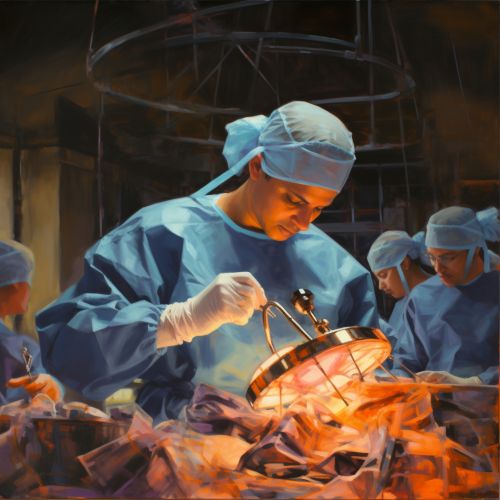Transplantation medicine
Overview
Transplantation medicine is a specialized field of medicine that involves the transfer of human cells, tissues, or organs from a donor to a recipient with the aim of restoring function in the body. This field is a sub-discipline of surgical medicine, and it encompasses numerous areas including immunology, pharmacology, anesthesiology, and pathology.


History
The history of transplantation medicine is a fascinating journey that spans centuries. The first recorded attempts at transplantation were skin grafts performed in India in 800 B.C. However, the modern era of organ transplantation began in the 20th century, with the first successful kidney transplant taking place in 1954 between identical twins.
Types of Transplants
There are several types of transplants that are commonly performed in transplantation medicine. These include:
- Kidney transplants
- Liver transplants
- Heart transplants
- Lung transplants
- Pancreas transplants
- Intestinal transplants
- Bone marrow transplants
Donor Types
There are two main types of donors in transplantation medicine: living donors and deceased donors. Living donors can donate a kidney, a portion of the liver, lung, intestine, or pancreas. Deceased donors can donate kidneys, liver, lungs, heart, pancreas, and intestines.
Transplant Rejection
One of the major challenges in transplantation medicine is transplant rejection. This occurs when the recipient's immune system recognizes the transplanted organ as foreign and attacks it. There are three types of transplant rejection: hyperacute, acute, and chronic.
Immunosuppression
To prevent transplant rejection, recipients are typically given immunosuppressive drugs. These drugs reduce the activity of the immune system, making it less likely to attack the transplanted organ.
Ethical and Legal Considerations
There are numerous ethical and legal considerations in transplantation medicine. These include issues related to consent, allocation of organs, and the use of organs from living donors.
Future Directions
The future of transplantation medicine is promising, with advances in immunosuppressive therapies, organ preservation techniques, and the potential for organ regeneration and bioengineering.
